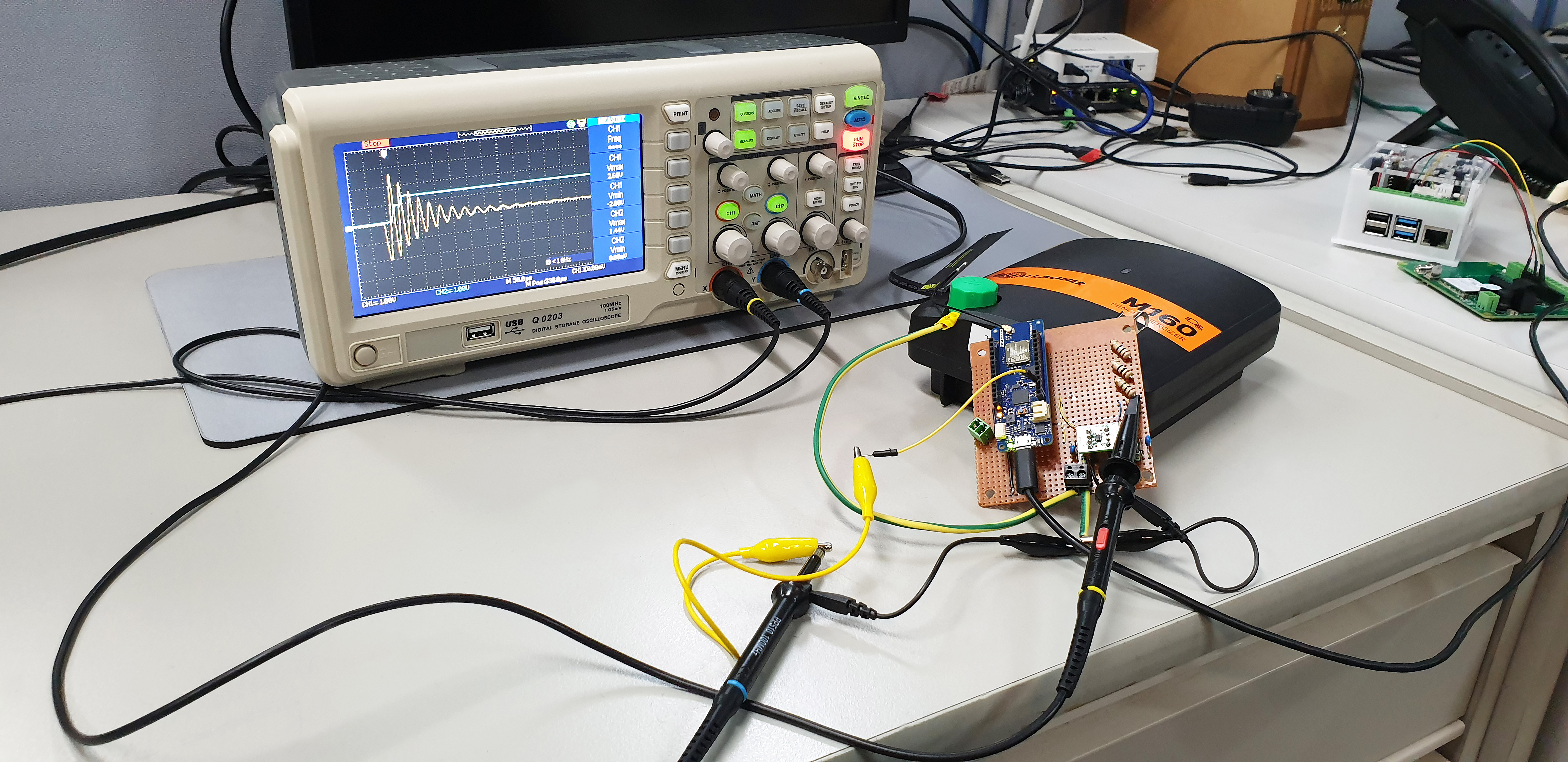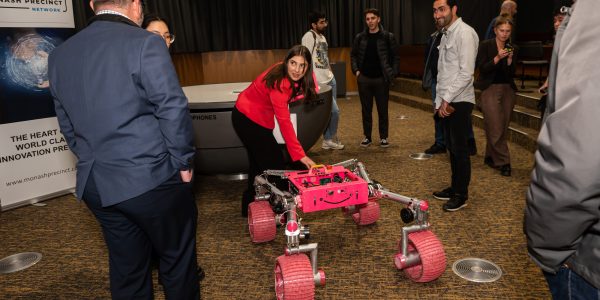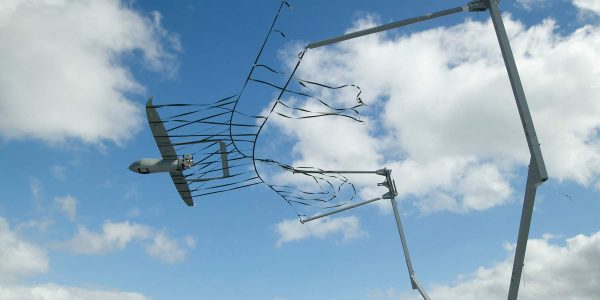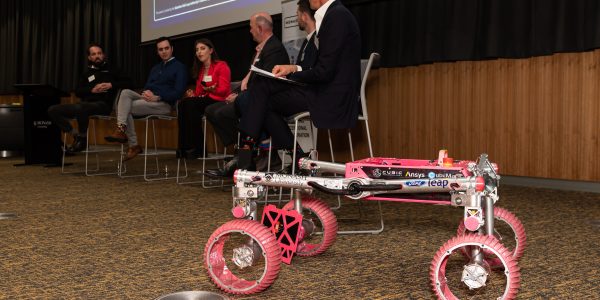Our ‘Monash of’ series through 2023 explored three key topics of jobs, innovation and mobility of the future.
With so much hype around technological advancements in the next decade, some of our members are paving the way with innovative ideas, products and ways of working.
Unique Micro Design (UMD) is a valued member of Monash Precinct Network and has a strong reputation for cutting-edge technology solutions and innovative approaches.
We asked the team at UMD to share their valuable perspectives on the future of technology and use of artificial intelligence…
In the rapidly evolving field of technology, what areas do you foresee as the most promising for growth and innovation over the next decade, and how does Unique Micro Design (UMD) plan to stay at the forefront of these developments?
Much of the technology development in our domain is in improving:
- traceability
- productivity
To achieve the above, it is best to automatically collect and process data as close as possible to the source. This data is fed to software systems that provide process control and information to operators.
A range of technologies including embedded controllers, software technologies, Internet of Things (IoT), radio-frequency identification (RFID), barcode readers and sensors are used to add “eyes and ears” to software.
The growing challenge is to provide full-stack solutions to solve customer needs in a complex world.
Increasingly, “paddock to plate” traceability is being demanded to verify the provenance of products and services: Is this timber product sourced from a sustainable forest? What temperatures has this vaccine been exposed to? When will I receive my shipment and where is it now?
To this end, we are seeing multi-sensor combinations as a growth area, eg RFID tags that are used to track products can now be used to also measure temperature as well.
To keep abreast of changes in the marketplace and technologies, UMD develops its own Intellectual Property and thought leadership. UMD is also increasingly working in collaboration to commercialise and integrate IP owned by others. We are looking forward to working with Monash Precinct Network members here!
Given the rise of artificial intelligence and machine learning, how is UMD exploring the potential of AI-driven solutions in your product portfolio? What opportunities and challenges do you foresee in the integration of AI technologies into various industries over the next 10 years?
Currently sensor data is fed into systems which provide outputs such as logic to control processes, alarms, graphs and reports.
The key challenge for industry over the next decade is the integration of its disparate enterprise systems.
Machine learning will be increasingly used to provide operational insights by melding data from many sources. A great example is predictive maintenance and process optimisation.
For machine learning to be effective in industrial situations, it needs to be able to ‘feel, see and smell’ the environment using sensors such as cameras, RFID, temperature, humidity and location.
UMD is well placed to ride the machine learning wave with its system integration techniques and technologies. For example, its sophisticated Chariot cloud based broker service will be enhanced to have connectors to machine learning systems.
What role does UMD envision AI playing in the jobs of the future, and how is UMD developing or adapting its technology solutions to support this evolving employment landscape?
UMD is an engineering company that solves problems. To do this, we hire talented, multi-disciplinary professional engineering graduates from Monash and other universities. We have a well established mentoring program and ‘on the job’ training is a daily affair!
We expect that future graduates will have been exposed to machine learning and robotics technologies and hence able to transfer these skills to UMD. Professional development is encouraged for up-skilling.
As the world becomes increasingly interconnected, how does UMD envision the role of the IoT and edge computing in shaping the technological landscape over the next 10 years? What solutions or products is UMD developing to contribute to this transformation?
A key challenge in the growing technology landscape, especially software, is how you manage all these data collection devices.
The typical approach with IoT devices is to have a cloud based broker which receives data from IoT publishing devices and routes this data to subscribing application services.
A key advantage of this approach is that subscribers of data are not concerned about how the data is collected or routed, and likewise, publishers are not concerned by who needs the data. This approach allows systems to scale.
UMD has developed its own cloud based broker service (Chariot) which has additional features including device management, logging and the like. Chariot simplifies the development process and the rapid building of full stack solutions in a standardised way.
In the context of digital transformation, what trends and technologies does UMD expect to have the most significant impact on businesses and industries in the coming decade, and how are you preparing to support your clients in adopting these technologies?
A challenge with digital transformation is interconnecting an organisation’s legacy systems, which have had significant investment and not readily replaced.
UMD has developed an architecture to deal with this challenge, called “ICADA” for IoT Control And Data Acquisition. Those in the industry will recognise the play on words from “SCADA” – Supervisory Control And Data Acquisition, which monitors machines and plants.
ICADA adds real time visibility and control, using IoT cloud-based technologies to collect, display and action data. ICADA operates independently of existing SCADA systems. It uses lightweight infrastructure typically with wireless communications and non-contact sensors, to minimise the impact on existing infrastructure.
ICADA assists clients to participate in the digital transformation journey by extending and enhancing their legacy systems.
Interested in becoming a member of Monash Precinct Network? View our memberships here.



